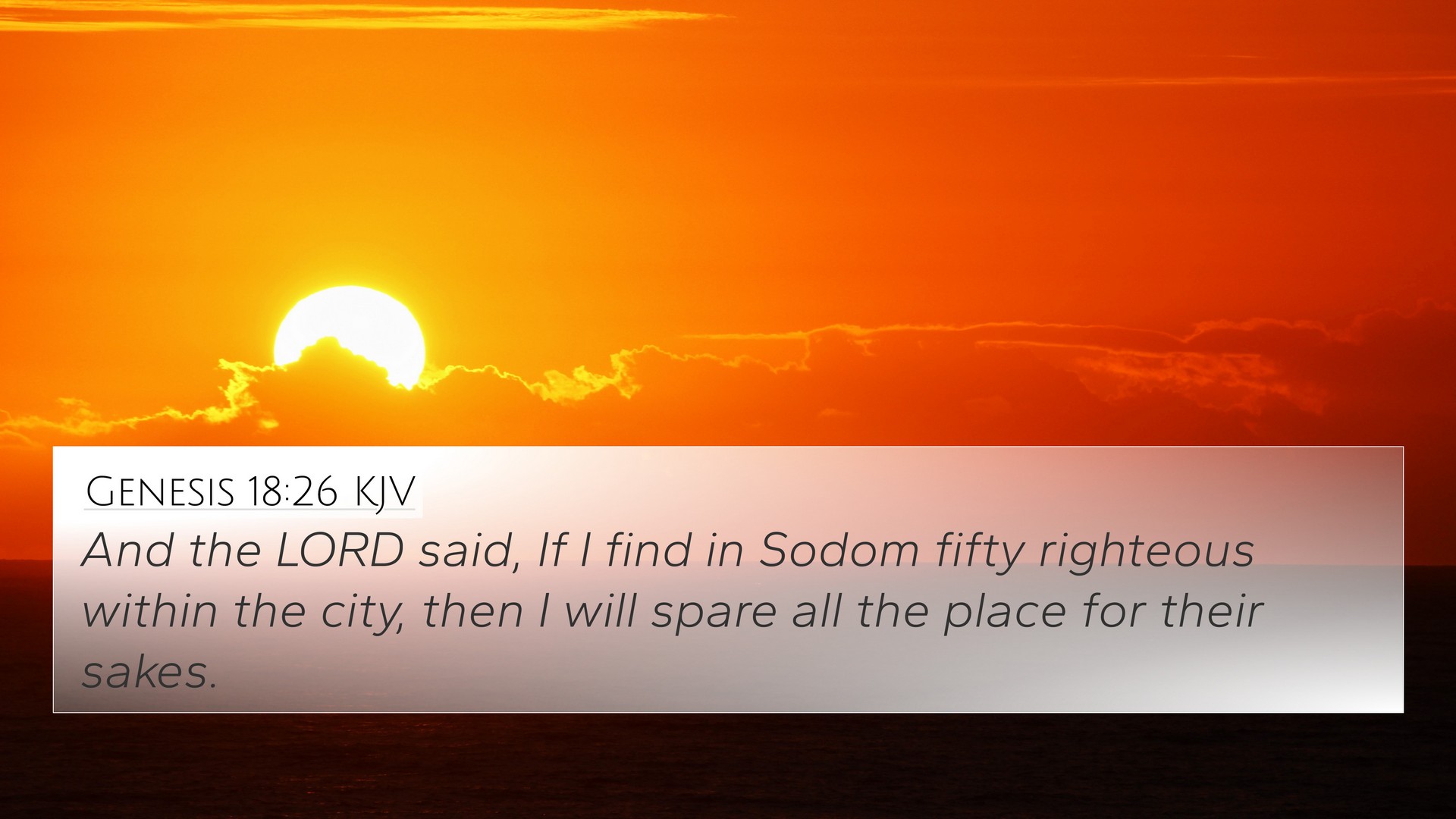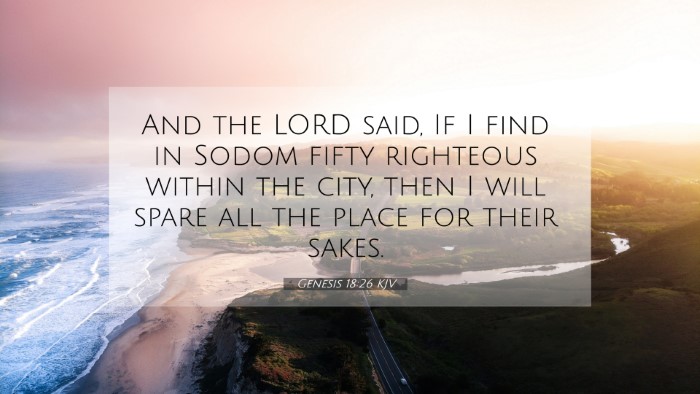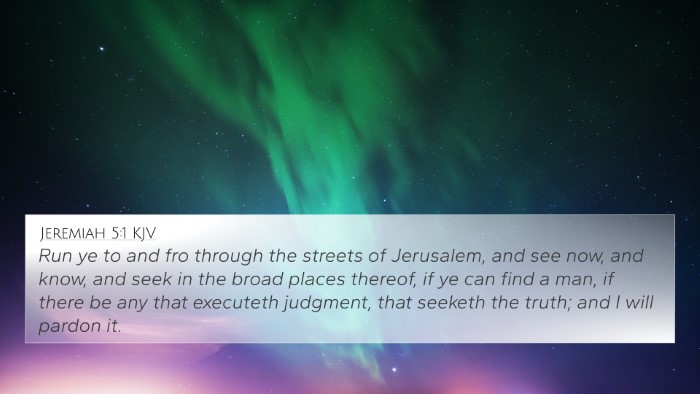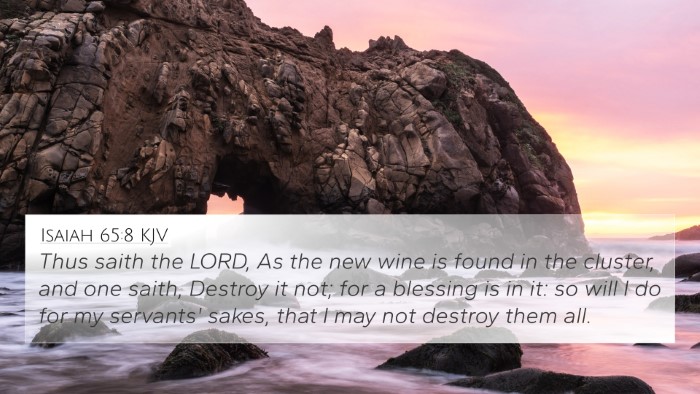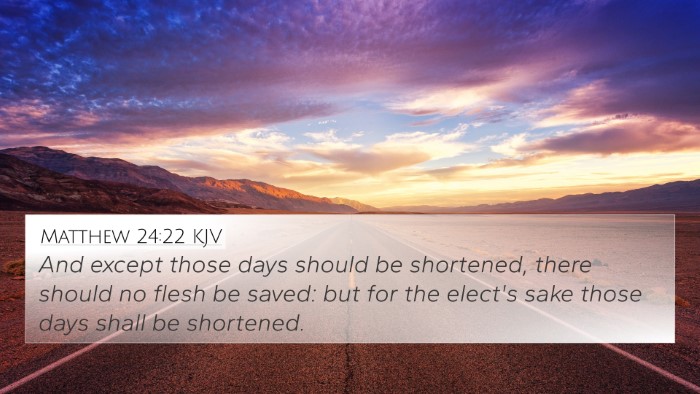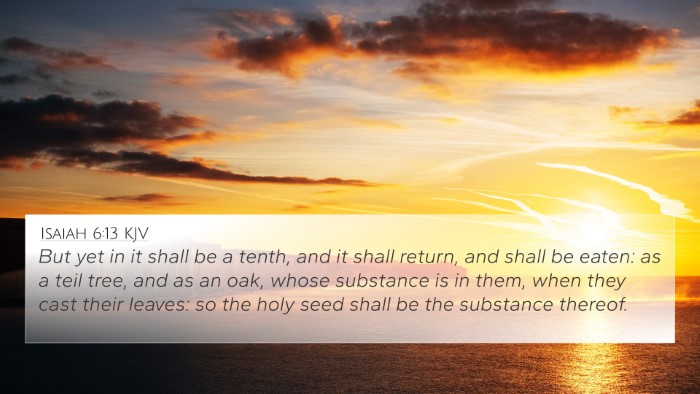Understanding Genesis 18:26
Genesis 18:26 states:
"And the LORD said, If I find in Sodom fifty righteous within the city, then I will spare all the place for their sakes."
This verse occurs during Abraham's intercession for Sodom, where he pleads with God for the city, exemplifying themes of justice, mercy, and the seriousness of sin. The implications of this verse extend into discussions of God’s character and His dealings with humanity.
Meaning and Insights
This verse can be broken down into several key insights:
- Divine Justice: God demonstrates His commitment to justice and righteousness by indicating that the fate of Sodom hinges on the presence of the righteous.
- The Role of Intercession: Abraham’s intercession showcases the importance of prayer and pleading for others, reflecting a relationship with God that welcomes dialogue.
- The Mercy of God: God's willingness to spare the city based on the presence of just individuals highlights His mercy, even in the face of widespread wickedness.
- God's Accountability: This verse emphasizes that God is mindful of humanity’s moral state and is responsive to the presence of righteousness.
Commentary Highlights
Matthew Henry's Commentary: Henry emphasizes that God’s willingness to spare Sodom for the sake of fifty righteous reflects His justice and mercy. He also notes that this interaction between God and Abraham demonstrates the faithful relationship between humans and the Divine.
Albert Barnes' Notes: Barnes points out that the mention of “fifty righteous” signifies the magnitude of Sodom's sin. God is portrayed as just, willing to spare cities if they possess enough of the righteous, showcasing both His judgment and His desire for repentance.
Adam Clarke's Commentary: Clarke highlights the significance of intercession in this passage, stressing that Abraham's negotiation reflects a profound understanding of God’s nature and justice. Clarke further provides reflections on the nature of a righteous life, suggesting that righteousness is relational and has communal implications.
Cross-References
Genesis 18:26 relates to the following Biblical passages:
- Genesis 19:29: References the deliverance of Lot as God’s mercy in the wake of impending judgment.
- Exodus 32:30-32: Moses intercedes for Israel, paralleling Abraham's pleas for Sodom, showcasing themes of advocacy and mercy.
- Jeremiah 5:1: Calls for a search for righteousness in the city, similar to Abraham’s search for the righteous in Sodom.
- Luke 18:7-8: Jesus emphasizes the importance of persistence in prayer and the nature of God as just, echoing themes from Genesis 18.
- Ezekiel 18:30-32: The call to repentance and encouragement toward righteousness reflects God's desire for humanity's moral integrity.
- Romans 5:8: While focusing on God's love, it underscores that God acts for the sake of the righteous in the context of grace.
- Matthew 5:13-16: Believers are called to be the 'salt of the earth,' highlighting their role in influencing the righteousness of society.
Overall Themes and Patterns
This passage not only teaches about the characteristics of God but also reflects themes that are evident throughout Scripture:
- Intercession and Advocacy: Both Abraham and Moses serve as powerful examples of individuals who intercede on behalf of others, which is a recurring theme throughout the Bible.
- Righteousness as a Community Standard: The concept that a community can be influenced by the presence of the righteous is a theme that resonates through multiple texts, including Proverbs and Psalms.
- God's Mercy and Grace: Understanding God’s forgiving nature is essential, and this is evident in many narratives, both in the Old and New Testaments.
Conclusion
Genesis 18:26 presents a significant moment of dialogue between God and Abraham that encapsulates the complexity of divine justice, mercy, and human intercession. It serves as a foundation for understanding the character of God and the importance of righteousness within a community.
For further exploration, one may consider using Bible concordances or cross-reference Bible study tools to enhance their understanding of these connections. The relational nature of righteousness, coupled with God's unwavering justice, offers a profound insight into the kingdom's values and how believers are called to reflect these in their lives.
